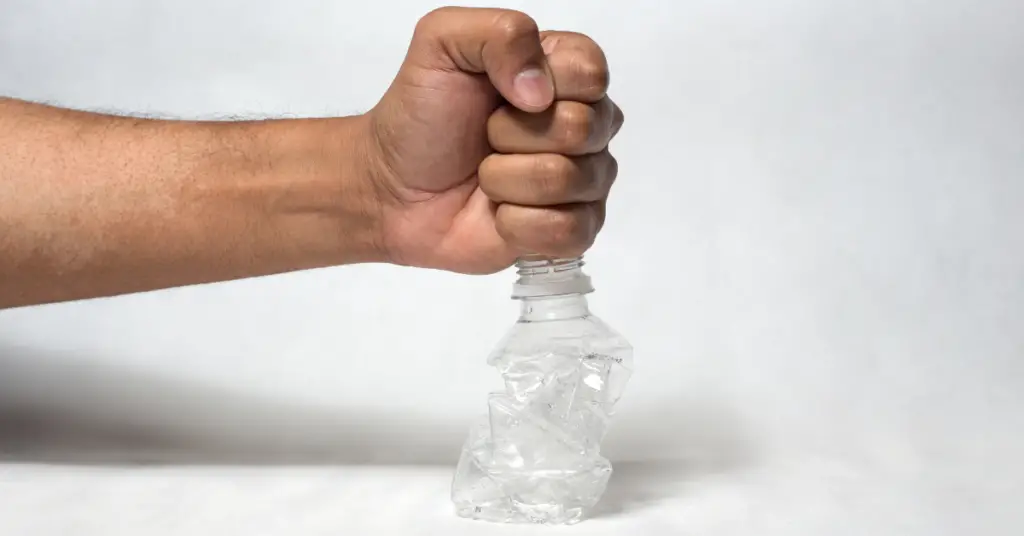Reducing plastic is of course particularly problematic because it is not biodegradable and therefore lasts much longer than other forms of waste. A few small steps in everyday life would help keep plastic out of the waste stream.
Tips to reduce plastic waste:
- Avoid using single-use plastics 90% of the plastic items in our daily lives are used once and then thrown away: supermarket bags, plastic wrap, single-use cutlery, straws, coffee cups.
- Notice how often we rely on these products and replace them with reusable versions. It only takes a few times to carry our own bags to the store, cutlery to the office, or travel mug to the office tea areas before it becomes a habit.
- Minimize water purchases
- Approximately 20 billion plastic bottles are thrown away every year. Get used to reusable bottles in the bag, use water from the office, household, and work area where you can trust the quality of the water.
- Minimize the use of plastic cutlery. Getting used to using metal cutlery instead of plastic cutlery would help save a lot of plastic that goes in the trash every year.
- Buying Second-Hand Items Newer items come with a lot of packaging material, try to use second-hand materials until you really need them.
Reuse
Reuse is an advance over recycling. Divert plastic and relieve recycling services. In fact, reuse is the middle ground between reduction and recycling, and some would be surprised at how many opportunities there really are for reuse.
You can reuse plastic bags for sandwiches, plastic bags for small trash bags, and plastic cutlery. Most people skip this step and go straight to recycling, but reusing plastic can reduce the demand for virgin plastic.
Can be reused many times, reusing the containers can lead to a significant reduction in demand for single-use plastic and lower material and energy consumption, leading to a reduction in environmental impact.
Recycle
The recycling and reuse of plastic waste has multiple uses of virgin materials and energy, therefore they are also a reduction in carbon emissions.
Benefits of recycling:
- Reduces environmental pollution
- Energy savings: 40 100 MJ/kg (depending on polymer)
- Economic benefits
- Reduces demand for virgin polymer
- Creates jobs
- Reduces depletion of fossil fuel reserves
Difficulties in recycling:
- Difficult to separate from non-plastics (no “magnetic” equivalent)
- Different composition of plastic resins means they are largely incompatible
- Breakdown of polymer chains during recycling
- Recycled polymer is of lower quality than virgin polymer
- Most waste plastics are films, especially thin plastic films, have limited market value, so no effort is expended in collecting them
- Identification of reuse and recycling opportunities
- Plastics markets; Lack of infrastructure
- Low value of recovered plastics
- Subsidy program for recycling
Reduce
Several factors can make the practice of plastic recycling difficult, such as collection of plastic waste, separation of different types of plastic, cleaning of waste, etc.
Another complicating factor is the low value of most products that can be made from recycled plastics. Reusing plastic is preferable to recycling because it uses less energy and fewer resources; However, recycling plastic requires less energy than producing plastic from raw materials.
It has been observed that to reduce the negative impact of plastic waste, it is better to recycle and reuse plastic waste in an environmentally friendly way.
In addition to reducing the amount of plastic waste to be disposed of, recycling and reusing plastic can have other benefits including:
- Conservation of non-renewable fossil fuels: Plastic production consumes 8% of global oil production, 4% as raw material and 4% during manufacturing
- Reduction of the energy consumption
- Reducing the amount of solid waste going to landfill
- Reducing emissions of carbon dioxide (CO2), nitrogen oxides (NOx) and sulfur dioxide (SO2)
Separating waste at source is also a very important step in managing the plastic waste generated . There are some cities that excel at this. In addition to waste sorting at source, some cities have set up city-wide sorting centers to facilitate secondary sorting of plastic waste into 25-27 categories and support plastic recycling.
A number of recycling techniques of the plastics have been collected which can be adopted by the dealing with the issue of plastic waste. It includes technology like:
- Mechanical Recycling
- Feedstock Recycling
- Plastic to Road Construction
- Plastic to Toilet / Pavement Blocks
- Recycling of Multi-layered plastic

Erzsebet Frey (Eli Frey) is an ecologist and online entrepreneur with a Master of Science in Ecology from the University of Belgrade. Originally from Serbia, she has lived in Sri Lanka since 2017. Eli has worked internationally in countries like Oman, Brazil, Germany, and Sri Lanka. In 2018, she expanded into SEO and blogging, completing courses from UC Davis and Edinburgh. Eli has founded multiple websites focused on biology, ecology, environmental science, sustainable and simple living, and outdoor activities. She enjoys creating nature and simple living videos on YouTube and participates in speleology, diving, and hiking.

